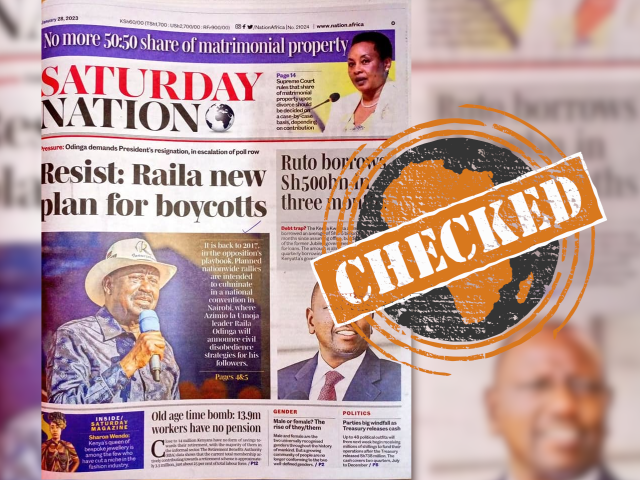This article is more than 9 years old
9.4-million hectares of land or 7.6-million?
There is conflicting data. Rural Development and Land Reform Minister Gugile Nkwinti told Parliament in 2013 that 4,813 farms had been transferred to black people and communities between 1994 and 2013, benefiting 230,886 people.
A 2012 survey by the South African Institute of Race Relations found that 2,864 farms had been redistributed by August 2009. Between 2009 and 2012, 848 farms were acquired, giving a total of 3,712 farms by 2012. The survey found there were over 220,000 beneficiaries by March 2012.
The accuracy of the official government figures have however been questioned.
Dr Peter Jacobs, a research specialist in economic performance and development at the Human Sciences Research Council (HSRC), told Africa Check last year that discrepancies exist between figures compiled by the Department of Rural Development and Land Reform, the National Treasury and “various researchers”.
An Africa Check report published after this speech highlighted the confusion. Zuma had contradicted himself in two speeches: first saying 9.4-million hectares of land had been redistributed since 1994, and then that it was 7.6-million (4.2-million ha transferred plus 3.4-million settled) in his February State of the Nation Address.
However, the 7.6-million threshold had already been passed in August 2012, according to Nkwinti in answer to a parliamentary question: “Roughly, therefore, land which has been restored, from 1994/95 - May 2009, amounts to 6.7-million hectares + 882,238ha (land redistribution: 2009 to-date) + 368,483 ha (restitution: 2009 to-date), totalling 7.95-million ha.”
Neither the Presidency nor the Department of Rural Development were able to confirm what the correct figure was last year.
'System of counting has changed so often'
There is conflicting data. A total of 67,531 land claims had been submitted by 1999. A backlog in processing saw this number grow to a total of 79,696 claims. By the end of 2012 nearly 96% of these claims had reportedly been settled.
The 2012/2013 annual report of the Commission on the Restitution of Land Rights (CRLR) stated: “A total of 77,334 claims have been settled to date. Of these, 71,292 claims were settled by payment of financial compensation of R6,561,021,691 to claimants.”
The report also indicated that a “total of 111,278 people benefitted from the restitution programme in the 2012/13 financial year”.
An earlier Progress Report on Land Restitution Claims delivered to the Portfolio Committee on Rural Development and Land Reform in February 2012 indicated that, between 1995 and January 2012, a total of 76,506 claims had been settled which impacted on 1,662,099 beneficiaries.
When the 2012/13 figure of 111,278 is added to this, it results in a total of 1,773,377 individuals.
However, a report released by the South African Human Rights Commission (SAHRC) after Zuma's speech showed that it was mostly rural claims “which are very complex” that remained outstanding. The SAHRC also said that it is “concerned that the number of claims outstanding as publicised is not dependable as the system of counting has changed so often”.
A database for claims was only created in 2000. At first the CRLR counted rights, then claim forms and then claims itself. In June last year 8,733 claims were still outstanding, contradicting government numbers.
Additional reading
Report: President Jacob Zuma’s sixth State of the Nation address fact-checked
Report: Wrapping up the [7th] State of the Nation
Report: Zuma’s land reform figures – officials don’t seem to know the real numbers
Report: Do 40,000 whites own 80% of SA? The claim is incorrect



Add new comment